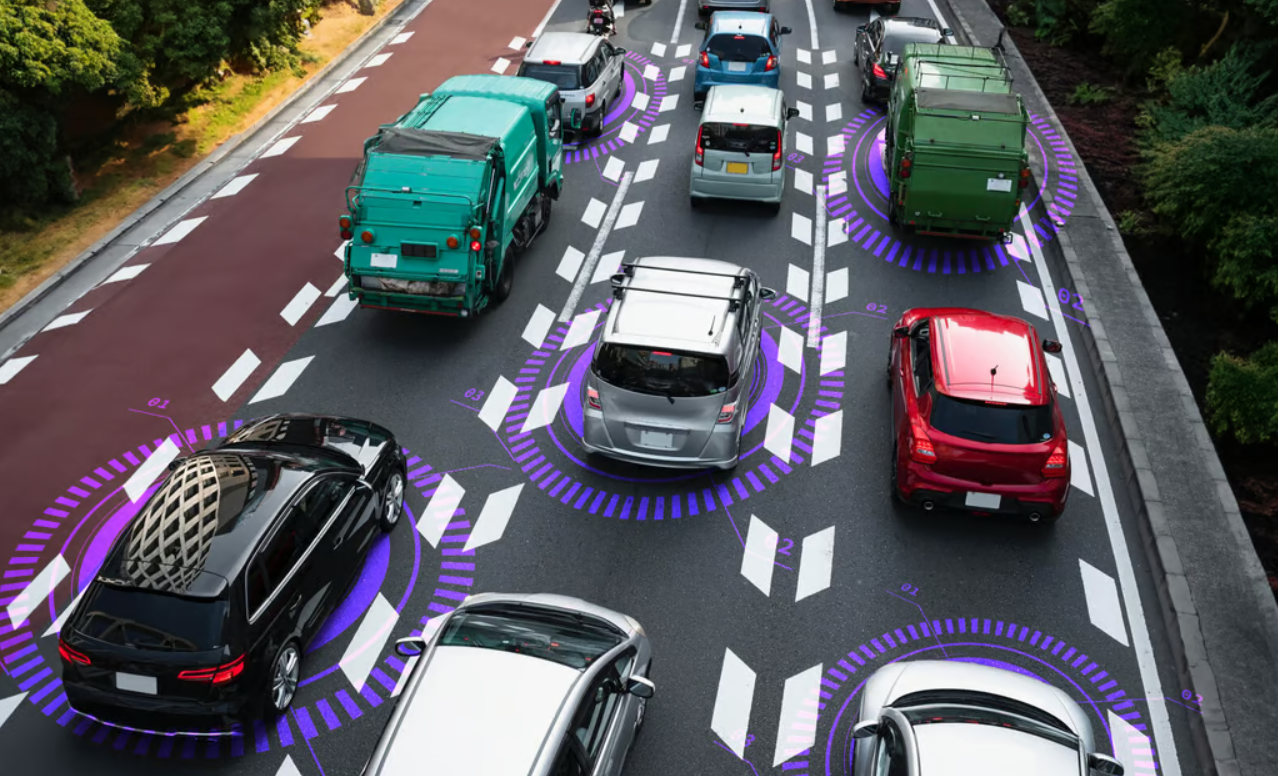Physical Address
304 North Cardinal St.
Dorchester Center, MA 02124
Physical Address
304 North Cardinal St.
Dorchester Center, MA 02124

Self-driving vehicles are redefining how we envision transportation, blending cutting-edge technology with innovative solutions to reshape our world. This article delves into the realm of autonomous cars, exploring the advancements propelling them forward and the profound impact they are poised to have on society.
Imagine a world where cars navigate traffic, pick up passengers, and even park—all without human intervention. This once-futuristic scenario is rapidly becoming a reality with the rise of self-driving vehicles. Known as autonomous or driverless cars, these groundbreaking machines are set to revolutionize the transportation industry in unprecedented ways. Equipped with advanced sensors, real-time data processing, and sophisticated algorithms, self-driving vehicles hold the potential to enhance road safety, reduce traffic congestion, and offer greater mobility to individuals with disabilities or limited access to transportation. As major companies and tech giants invest billions into autonomous technology, the era of driverless cars is on the horizon.
The development of self-driving vehicles hinges on a complex web of cutting-edge technologies and systems working in harmony. Sensors such as LiDAR, radar, and cameras allow the car to perceive its surroundings with precision, while high-definition maps provide essential navigation data. Machine learning algorithms process this information in real time, enabling the vehicle to make split-second decisions and maneuver safely. Additionally, smart communication systems between vehicles and infrastructure, known as Vehicle-to-Everything (V2X) technology, enhance situational awareness and coordination on the road. This interconnected network of technologies forms the backbone of autonomous driving, paving the way for a future where human error is minimized and road accidents are dramatically reduced.
The widespread adoption of self-driving vehicles promises a range of benefits that extend beyond mere convenience. Improved road safety is a key advantage, as autonomous cars can eliminate human error, which is the leading cause of accidents. Enhanced traffic flow and reduced congestion are also significant benefits, allowing cities to achieve greater transportation efficiency while minimizing environmental impact through optimized driving patterns. Furthermore, self-driving vehicles offer increased accessibility for senior citizens, individuals with disabilities, and those unable to drive for various reasons. By providing a secure and convenient mode of transport, autonomous cars have the potential to revolutionize mobility for all segments of society.
Despite the promise of self-driving vehicles, their widespread adoption brings unique challenges that must be addressed. A major concern is the ethical dilemma surrounding autonomous decision-making. For instance, how should a self-driving car prioritize safety in the event of an unavoidable accident? These moral questions raise complex issues that require careful consideration and clear guidelines. Additionally, cybersecurity threats pose a significant risk, as hackers could potentially compromise the systems of autonomous vehicles, endangering passengers. Ensuring robust cybersecurity measures and data protection is essential to maintaining the integrity and safety of self-driving technology in an increasingly interconnected world.
The advent of self-driving vehicles is set to trigger profound societal changes that go beyond transportation. With the potential for reduced car ownership and an increase in shared mobility services, urban landscapes may see shifts in parking infrastructure and public transportation systems. The displacement of jobs in industries reliant on manual driving, such as taxi services and delivery fleets, poses a challenge that requires proactive solutions for workforce transition. On the economic front, the rise of autonomous cars could spur new business models and revenue streams, driving innovation and investment in related industries. As autonomous technology becomes integrated into daily life, regulatory frameworks and policies must adapt to ensure a smooth transition to an autonomous future.
As self-driving vehicles continue to evolve and gain traction in the market, the future of mobility is poised for a transformational shift. From enhanced safety features to shared autonomous fleets, the possibilities for reshaping how we move from point A to point B are vast. Governments, industries, and consumers alike must collaborate to navigate the challenges and opportunities presented by the autonomous era. Ultimately, the rise of self-driving vehicles represents a pivotal moment in the history of transportation, signaling a bold leap toward a smarter, safer, and more efficient way of traveling. Buckle up for a future where the driver’s seat is no longer just a position but a symbol of innovation and progress.